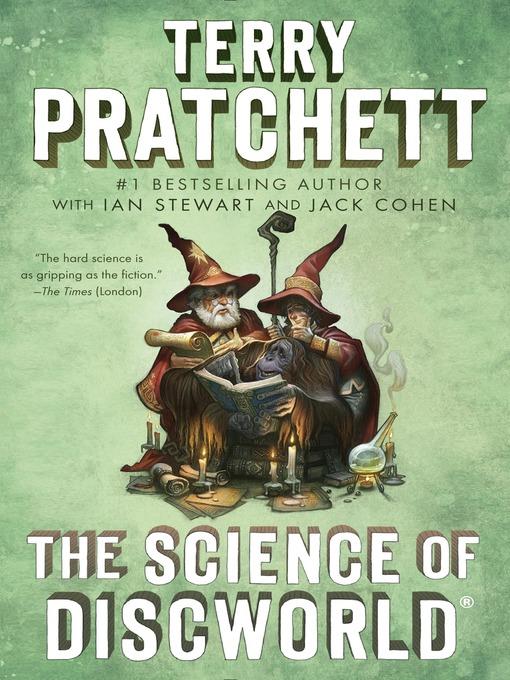
The Science of Discworld
A Novel
کتاب های مرتبط
- اطلاعات
- نقد و بررسی
- دیدگاه کاربران
نقد و بررسی

Unlike typical "science of" titles seeking to explain fantastic stories with real-world science, Terry Pratchett and his science advisers tell a story from the magical viewpoint of the flat Discworld. The evolution of this world is observed and explained using fictional terms that simply explain complex ideas. Stephen Briggs brings his usual expertise to his narration, warmly delivering dialogue and narrative. In particular, his mastery of dialect distinguishes characters without overacting. Michael Stevens delivers a more clinical narration, describing various bits of history and science in a slightly didactic manner. The result is hilarious but also uniquely informative, allowing fiction to suggest fact in an organic manner. A.Z.W. Winner of AudioFile Earphones Award © AudioFile 2014, Portland, Maine

January 6, 2014
Acclaimed fantasy writer Pratchett and mathematicians Stewart and Cohen deliver a unique and outrageously funny look at the history of our world through the eyes of the wizards of Discworld’s Unseen University. When Chief Research Wizard Ponder Stibbons splits the thaum (a unit of magic, much as the atom is a unit of matter) in a makeshift lab in the university squash court, he creates “Roundworld.” Discworld runs on narrativium, the power of story, but Roundworld has no narrativium. Instead, it runs on rules based on science. The story of the wizards’ befuddled investigation of Roundworld is interwoven with chapters on various science topics: how did the universe begin? Where did the chemical elements come from? How did the solar system form? How did life evolve on Earth? Could there be life on other planets? The science in this revised edition of a U.K. title originally published in 1999 isn’t completely up to date (Pluto is still a planet here, and the search for exoplanets has barely begun), but the writing is as entertaining as it is accessible.

























دیدگاه کاربران